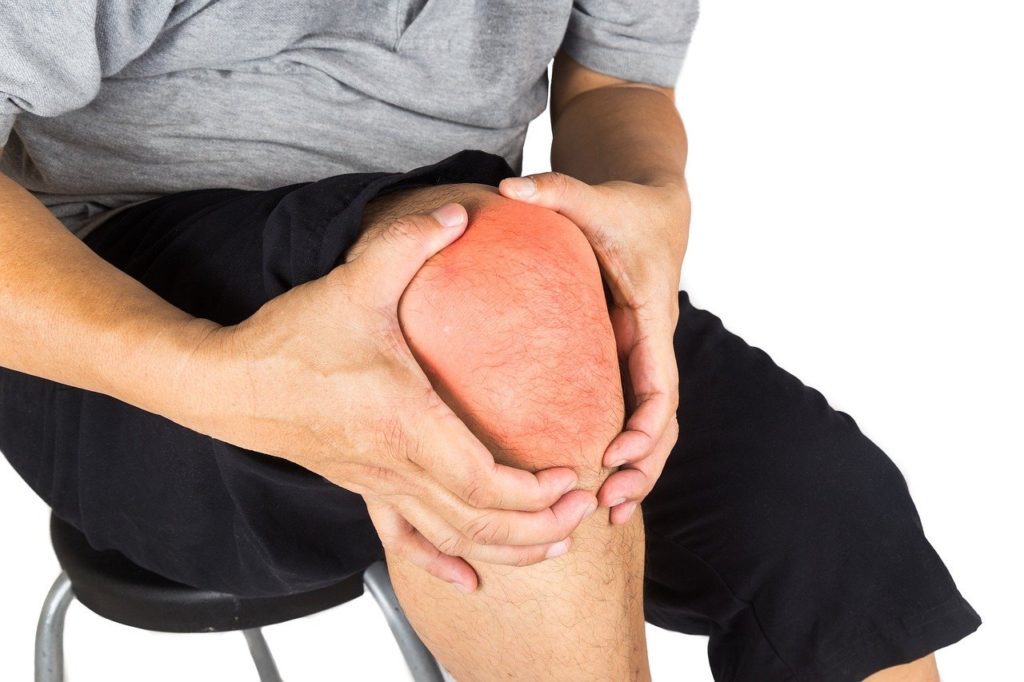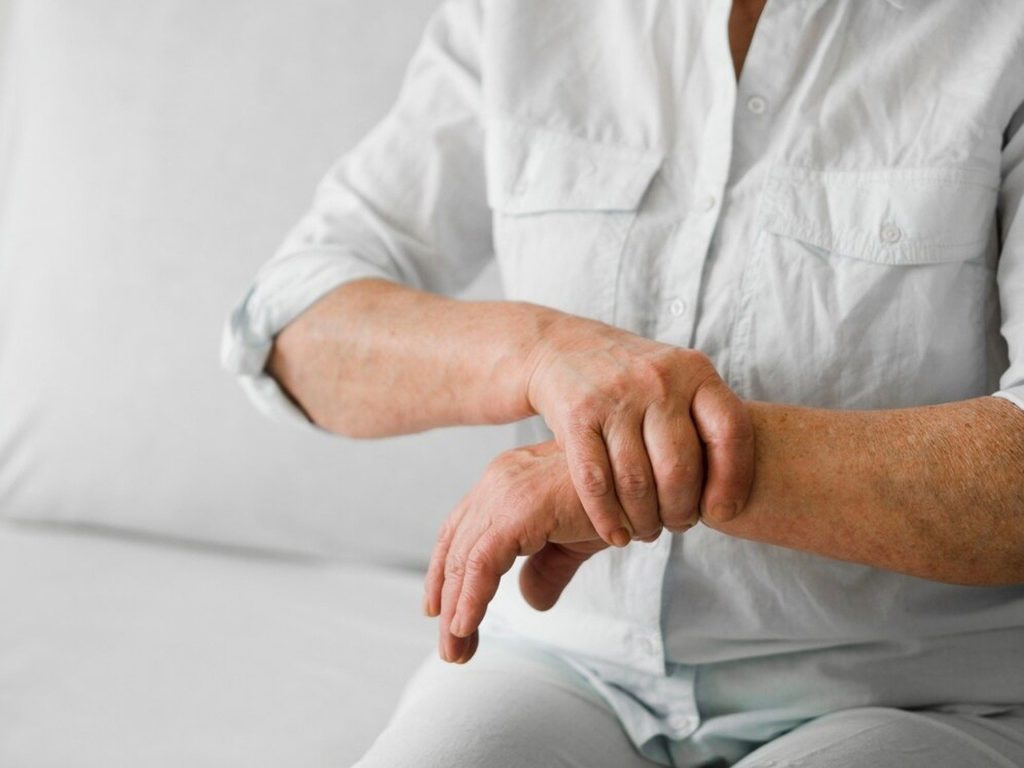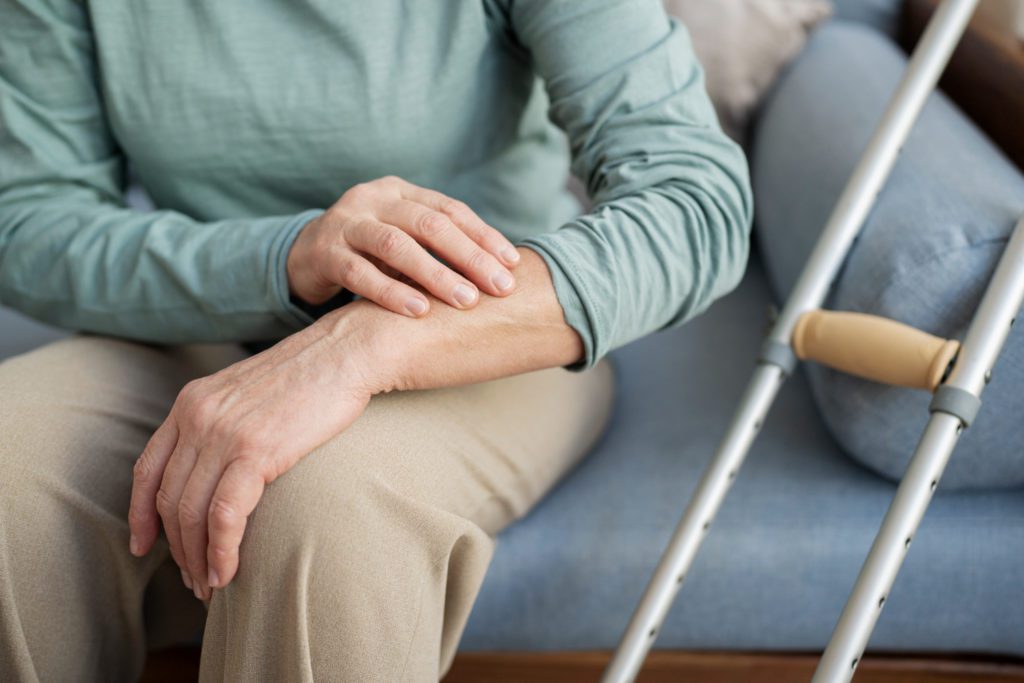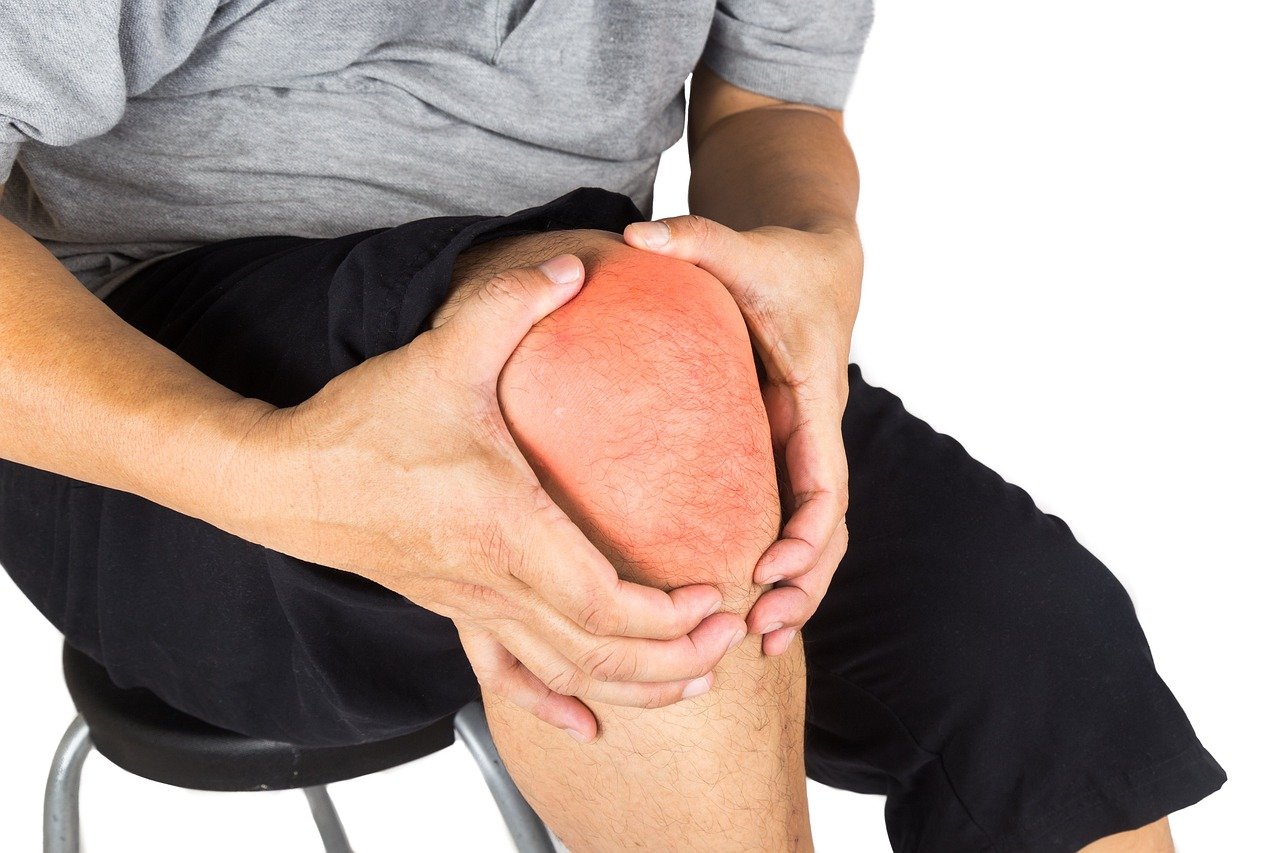Interested in understanding the effects of rheumatoid arthritis on your joints? Rheumatoid arthritis is a persistent autoimmune disorder characterized by inflammation and discomfort in the joints. This article explores the origins, signs, and remedies for this condition, providing valuable information to help you cope with it.
Rheumatology Arthritis: Causes, Symptoms, and Effective Treatments

Rheumatoid arthritis (RA) is an inflammatory form of arthritis that predominantly targets the small joints in the hands and feet. Unlike osteoarthritis, which results from wear-and-tear damage, RA affects the lining of the joints, causing painful inflammation that can eventually lead to bone erosion and joint deformity. The process behind joint inflammation and damage with RA involves an error within the immune system where it mistakenly assaults healthy tissue in your joints. This misguided attack releases chemicals intended for foreign threats but instead creates:
- Joints that are tender, swollen, warm
- Morning stiffness or stiffness after sitting idle
- General fatigue and feeling unwell
- Loss of appetite alongside weight loss
- Permanent joint changes leading to a limited range of motion
Such symptoms can profoundly disrupt day-to-day activities.
The approach to treating rheumatoid arthritis encompasses various strategies focused on diminishing both swelling around joints as well as pain. Preserving or enhancing their functionality. Treatments involve:
- Adjusting lifestyle habits
- Employing different therapeutic interventions
- Prescribing medications
-Surgical intervention when necessary
The objective remains to control RA effectively enough to either induce remission or get very close to it—reducing signs and symptoms significantly for improved life quality.
Acquiring knowledge about what triggers rheumatoid arthritis’ onset along with recognizing its signs enables individuals coping with this chronic condition to better manage debilitating effects by applying suitable treatment options available today.
Introduction
Rheumatoid arthritis (RA) encompasses far more than the discomfort of joint pain. It’s a complicated autoimmune disease with a substantial impact on one’s daily living. In this blog post, we’ll dissect RA thoroughly, examining its origins, manifestations, and the diverse treatment options at hand.
For those who either possess a family history of rheumatoid arthritis or are dealing with the condition presently, this resource is crafted to offer meaningful information and actionable suggestions for coping with RA.
Understanding Rheumatoid Arthritis

Rheumatoid arthritis (RA) is an autoimmune disease that not only causes chronic inflammation in the joints but can also impact a variety of body systems. The condition arises when one’s immune system, which typically serves as a defense against pathogens such as bacteria and viruses, erroneously targets the synovium—this is the tissue lining within joint capsules. Consequently, this leads to inflamed joints characterized by swelling, warmth, and discomfort.
The implications of RA are far-reaching. It goes beyond just causing pain and swelling in joints to instigate significant damage across multiple joints while having widespread systemic effects on overall health. It’s crucial to have a comprehensive understanding of how rheumatoid arthritis affects both individual joints and the entire organism so that those managing this chronic inflammatory disorder can maintain their well-being optimally.
How Rheumatoid Arthritis Affects Joints
Rheumatoid arthritis is a condition where the synovium, which acts as a lubricating layer for joints, becomes inflamed. This inflammation can have several consequences.
- It can cause the synovium to thicken and result in joint instability and unusual positioning.
- Chronic inflammation may also lead to the destruction of bone structure and alterations in joint shape over time.
- The onset typically starts with the smaller hand and foot joints before potentially advancing toward larger ones without proper management.
Joint damage linked to rheumatoid arthritis usually manifests within two years after symptoms first appear, emphasizing the importance of prompt identification and intervention. Indicators of such damage include:
- Stiffness during morning hours or following periods of rest
- Soreness around affected areas
- Physical changes within joints themselves
- A diminished ability to move freely
To manage this disease successfully, treatment plans often incorporate medications alongside physical therapies designed specifically for reducing inflammatory responses while safeguarding against additional harm to one’s joints. Thus preserving functionality and movement capacity.
Systemic Effects of Rheumatoid Arthritis
Rheumatoid arthritis goes beyond affecting joints, with systemic effects that can impair a variety of organs and body systems. The chronic inflammation linked to RA contributes to an increased likelihood of cardiovascular conditions, such as coronary artery disease and related heart issues. This is due to the continuous inflammatory response causing arteries to become stiff and obstructed, thus complicating the health management of people living with RA.
Rheumatoid arthritis may also impact:
- Lung health leading to diseases like interstitial lung disease
- Skin
- Eyes
- Blood vessels
Research has identified molecules like RvT4 which play a role in bolstering the body’s protection against conditions such as atherosclerosis in patients with rheumatoid arthritis—evidence of advancing efforts aimed at better comprehending and reducing this autoimmune disorder’s systemic consequences.
Recognizing these widespread impacts is crucial for thorough management strategies encompassing more than just joint care but considering comprehensive wellness for those suffering from this condition.
Symptoms of Rheumatoid Arthritis

Rheumatoid arthritis is characterized by a range of symptoms that can greatly affect everyday activities. Notably, the most prevalent indications of this condition are:
- Joints that are swollen, warm to the touch, tender, and cause discomfort – commonly beginning with smaller joints like those in your hands and feet.
- Stiffness within the joint areas tends to be more pronounced in the mornings or after being inactive for some time.
- General body issues include feelings of fatigue, elevated temperatures, and diminished hunger.
Rheumatoid arthritis can lead to systemic concerns such as increased tiredness levels, heightened temperature readings, and a reduction in one’s desire for food. These wider health complications add layers of difficulty when managing RA.
Early detection is crucial when it comes to rheumatoid arthritis. Recognizing its early symptoms promotes prompt diagnosis and management. Despite variability from person to person regarding these symptoms’ presentation severity or a combination thereof, awareness about what they look like aids individuals in pursuing medical consultation sooner rather than later leading them toward potential treatment opportunities without unnecessary delay.
Early Signs of Rheumatoid Arthritis
The onset of early rheumatoid arthritis is often marked by subtle and easily missed indications. The initial signs can include:
- Inflammation that is mild to moderate affects a few smaller joints, particularly those in the fingers and toes.
- Stiffness in the morning that persists for more than half an hour.
- A consistent feeling of fatigue.
- Joint swelling, with hands and feet being common areas.
These symptoms are characteristic indicators of early-stage rheumatoid arthritis.
It’s important to note these symptoms can fluctuate in severity and may not be constant. Identifying them promptly is crucial for an early diagnosis which enables effective disease management. Early intervention helps prevent significant joint damage thereby improving outcomes over time.
Advanced Symptoms and Complications
As the severity and reach of rheumatoid arthritis symptoms amplify, an increasing number of joints may be involved, exacerbating joint destruction and disability risk. Left unmanaged, RA has the potential to cause profound deformities in the joints due to their displacement over time. Some people with this condition might notice the growth of rheumatoid nodules—these are soft lumps that typically appear under the skin near affected joints and are a distinguishing hallmark of rheumatoid arthritis.
Advanced stages of RA can precipitate additional health issues beyond harm to your joints. For example, accelerated progression in individuals with gum disease underscores critical considerations for oral hygiene maintenance. Acknowledging these more severe symptoms along with associated risks stresses how vital ongoing healthcare supervision is as well as adopting assertive treatment measures aimed at mitigating the adverse effects brought on by this illness.
Causes and Risk Factors

The root cause of rheumatoid arthritis continues to elude medical experts, yet it’s speculated that a mix of genetic predispositions and environmental elements contributes to its onset. Risk factors heightening the chances of developing rheumatoid arthritis include:
- Genetics: The presence of specific genes might increase vulnerability to environmental stimuli, which may then spark off the autoimmune reaction causing RA. A family history of rheumatoid arthritis is associated with an elevated risk for the disease.
- Gender distinction: Women stand at a greater likelihood than men to develop this condition.
- Age bracket: Typically, individuals between 30 and 60 years old are more frequently diagnosed with rheumatoid arthritis.
Lifestyle choices such as smoking and dietary habits have been implicated in playing a role in triggering RA. Understanding these etiological contributors and related risk factors aids in recognizing those who face higher risks so that preventative strategies can be enacted where feasible.
Genetic and Environmental Factors
Genetic predispositions do not single-handedly lead to rheumatoid arthritis, yet they increase the risk of developing the disease when exposed to environmental catalysts such as infections. Environmental triggers encompass a range that includes viruses, bacteria, and various stress forms—both physical and emotional—which can awaken specific genes in those who are genetically prone to RA, triggering its development.
Recognizing how genetic and environmental factors collaborate is crucial for pinpointing possible provocations and mitigating risks associated with the disease.
Lifestyle Factors
Choices in one’s lifestyle can have a substantial influence on the likelihood of developing rheumatoid arthritis. Particularly for those with a genetic predisposition to RA, cigarette smoking stands out as a significant risk factor. By ceasing to smoke, individuals not only diminish their chances of getting rheumatoid arthritis but also boost general health and enhance the probability of entering into remission from RA.
Carrying excess body weight increases the probability of developing rheumatoid arthritis. Thus, maintaining an appropriate weight is crucial both for preventing and treating the condition because it correlates with heightened risk factors.
Diagnosis of Rheumatoid Arthritis

To ensure the successful management of rheumatoid arthritis, securing an accurate diagnosis is essential. Pinpointing RA can be complex as there’s no exclusive test for it and its symptoms often mirror those found in other medical conditions. Early detection is critical since early intervention substantially improves long-term health prospects. The diagnostic process for RA involves a suite of approaches.
- Thorough review of personal medical history
- Careful physical assessment
- A range of laboratory blood tests
- Imaging assessments
Gathering a comprehensive medical history sheds light on the individual’s specific symptoms, their development over time, and any changes experienced, along with investigating whether there’s a familial predisposition to RA or analogous ailments.
During the physical examination phase, physicians look out for indications such as:
- sensitivity in joints,
- swelling,
- warmth around affected areas
- reduced joint mobility.
Supporting these clinical evaluations are various blood testing procedures and imaging techniques which aid not only in confirming an initial diagnosis but also help gauge disease advancement.
Medical History and Physical Examination
In diagnosing rheumatoid arthritis, it is vital to conduct an exhaustive medical history that captures the nature of the patient’s symptoms, how long they’ve been present and their intensity, along with any instances of RA within the family. In a physical examination context, physicians meticulously evaluate signs such as joint sensitivity, inflammation, heat emanation from joints, and restrictions on motion. They also monitor the patient’s ability to carry out everyday tasks while checking for typical indicators of RA like slight fever or nodules beneath the skin.
Blood Tests and Imaging
Blood tests and imaging techniques are essential for diagnosing and monitoring rheumatoid arthritis. The following tests are commonly used:
- Rheumatoid factor (RF) test: checks for an antibody common in RA patients
- Anti-CCP test: detects antibodies that appear early in the disease
- ESR (erythrocyte sedimentation rate) test: measures inflammation levels
- CRP (C-reactive protein) test: helps assess the severity of the condition
These tests help healthcare professionals accurately diagnose and monitor rheumatoid arthritis.
Imaging techniques, such as X-rays, MRI, and ultrasound, provide detailed views of joint inflammation and damage, aiding in the diagnosis and monitoring of RA.
Treatment Options for Rheumatoid Arthritis
The management of rheumatoid arthritis involves a holistic strategy that focuses on attaining remission or very low disease activity, reducing the severity of symptoms, and enhancing overall well-being. The key objective is to alleviate joint pain and inflammation while preserving or improving joint function. This is accomplished through an array of approaches such as pharmacological treatments, physical rehabilitation, and, when necessary, surgical procedures. Continual assessment and tailored treatment regimens are critical for responding to the evolving health status and individual requirements of the patient.
Pharmaceuticals serve as the cornerstone in treating rheumatoid arthritis. Physical therapy exercises play a significant role too – with surgery acting as an adjunctive measure under certain circumstances. We will delve into these therapeutic interventions to gain insight into their integral roles in managing this condition effectively.
Medications
The management of rheumatoid arthritis and its progression heavily relies on medication. For alleviating pain and decreasing inflammation, common choices include non-steroidal anti-inflammatory drugs (NSAIDs) like ibuprofen and naproxen sodium. These can lead to adverse effects such as stomach issues and cardiovascular complications. Corticosteroids like prednisone are also effective for controlling pain and swelling but come with potential risks if used over an extended period, including the possibility of weight gain and osteoporosis.
To adjust the immune system’s response in rheumatoid arthritis patients, disease-modifying antirheumatic drugs (DMARDs) are utilized to accelerate the progress of the condition. Traditional DMARDs including methotrexate or hydroxychloroquine have been linked to slowing down disease activity though they might induce liver damage among other side effects. More recent classes of DMARDs—biologic agents and Janus kinase (JAK) inhibitors—target particular processes involved in inflammatory responses with a swift effectivity rate. Commencing treatment with these pharmaceutical options early on can notably enhance outcomes for individuals living with RA long-term.
Physical Therapy and Exercise
Managing rheumatoid arthritis effectively involves incorporating physical therapy and exercise into your daily routine. Exercises designed to preserve joint flexibility and strength can be taught by physical or occupational therapists, which in turn helps avert the Instability of the joints. Engaging in regular exercise offers several benefits including:
- Minimizing inflammation
- Fortifying bones
- Alleviating pain
- Enhancing mood and sleep quality.
People with RA are particularly encouraged to participate in low-impact activities like swimming, walking, and gentle cycling. Practices such as Yoga and Pilates also provide value by bolstering overall muscle strength while avoiding excessive strain on the joints. These types of exercises not only aid in controlling symptoms associated with rheumatoid arthritis, but they also promote greater health and wellness broadly speaking.
Surgical Interventions
When joint damage progresses despite the use of medications and physical therapy, surgical procedures might be contemplated. Options for surgery include synovectomy – a procedure to remove the inflamed joint lining to alleviate pain and enhance movement flexibility, as well as tendon repair operations that mend tendons affected by inflammation-related loosening or rupture.
For particularly grave instances where joints have sustained extensive damage, joint replacement surgeries are undertaken on areas such as the hip, knee, or shoulder to reinstate functionality. Such surgical interventions can markedly elevate life quality for those suffering from advanced RA.
Self-Care and Lifestyle Adjustments
Self-care and lifestyle adjustments occupy a central role in managing rheumatoid arthritis and enhancing overall health. Key aspects of self-care include:
- Maintaining a balanced diet
- Engaging in regular but appropriate exercise
- Avoiding smoking
- Paying attention to mental health
During flare-ups, resting is essential to allow joints to recover, and adjusting treatments in consultation with a doctor can help manage symptoms effectively.
Using heat for stiff joints and tired muscles, and cold packs for acute pain and inflammation can provide symptomatic relief. Weight management is also important, as losing weight can reduce stress on inflamed joints and enhance the effectiveness of RA medication. Incorporating these self-care strategies into daily routines can help individuals manage RA more effectively and improve their quality of life.
Diet and Nutrition
A balanced diet that includes plenty of fruits, vegetables, whole grains, and lean proteins can greatly influence the control of rheumatoid arthritis by reducing inflammation and helping to manage its symptoms. Individuals with rheumatoid arthritis are at an elevated risk for coronary artery disease. Making dietary adjustments that help maintain healthy cholesterol levels and support cardiovascular health is advantageous.
Losing weight is advised to alleviate pressure on inflamed joints, which assists in managing the condition more effectively.
Stress Management Techniques
Managing stress plays a crucial role in warding off exacerbations of rheumatoid arthritis, as both stress and environmental factors can provoke such flare-ups. Engaging in activities such as meditation, and yoga, and embracing the outdoors are effective ways to mitigate stress and enhance general health.
Adopting these practices consistently in everyday life may assist in alleviating pain and easing symptoms associated with rheumatoid arthritis, thereby aiding in more effective control of the condition.
Living with Rheumatoid Arthritis
Living with rheumatoid arthritis presents numerous obstacles, yet it is feasible to lead a fulfilling and active lifestyle through proper management techniques. Approximately 75% of individuals diagnosed with RA are within the working age bracket, underscoring the necessity for successful treatment strategies to sustain both work performance and life satisfaction. Partaking in preferred activities can bolster your emotional and physical health, even amidst periods of intensified symptoms.
Nevertheless, rheumatoid arthritis may trigger discomforts such as pain and swelling that interfere with restful sleep and potentially give rise to depression—which affects about one out of every six people living with this condition. Cultivating robust coping strategies along with a solid network of support plays an instrumental role in navigating these difficulties effectively and enhancing overall well-being.
Coping Mechanisms
Employing techniques like cognitive behavioral therapy and controlled breathing can be effective in mitigating the discomfort and anxiety that accompany rheumatoid arthritis. Maintaining a transparent dialogue with your healthcare provider regarding your discomfort may result in changes to your medication regimen or therapeutic approach, optimizing the management of your condition.
Adopting these approaches can greatly enhance the day-to-day lives of individuals affected by RA, equipping them to navigate both the psychological and physiological hurdles posed by this illness.
Support Systems
Individuals afflicted with rheumatoid arthritis greatly benefit from having a robust support network that offers both emotional backup and pragmatic help in coping with the disorder. Being part of a support group brings people together who are going through comparable struggles, which can lead to the exchange of supportive sentiments as well as actionable insights.
A solid foundation of support is instrumental in navigating the everyday hurdles presented by living with RA, providing a substantial impact on disease management.
Research and Innovations in Rheumatoid Arthritis
Innovations and ongoing research in the field of rheumatoid arthritis are paving the way for enhanced treatment options and strategies for disease management. An innovative PET imaging method has been introduced that can identify inflammation activity within the body even before patients experience clinical symptoms, thereby allowing earlier intervention and improved patient care. New therapies target precise molecular pathways related to RA’s progression, resulting in more effective ways to manage the disease.
Advancements include utilizing a cutting-edge organ-on-a-chip model replicating human synovium tissue, which expedites drug development processes aimed at treating arthritis. These developments underscore persistent efforts dedicated to unraveling RA’s root causes as well as generating advanced treatments — providing a beacon of hope towards achieving better health outcomes for individuals affected by rheumatoid arthritis.
Frequently Asked Questions
What are the main causes of rheumatoid arthritis?
Rheumatoid arthritis stems from a blend of genetic susceptibility and environmental elements like infections and smoking, which can spark off the autoimmune reaction.
As such, its onset is attributed to the interplay between genetic makeup and external factors.
What are the early symptoms of rheumatoid arthritis?
Rheumatoid arthritis often presents with initial signs such as mild to moderate inflammation in the joints, persistent stiffness upon waking that lasts for an extended period, swelling of the joints, particularly in the hands and feet, along a continual sense of tiredness.
Should you notice these symptoms of rheumatoid arthritis manifesting, it’s crucial to consult with a healthcare professional without delay.
How is rheumatoid arthritis diagnosed?
A detailed medical history and a physical examination are essential for diagnosing rheumatoid arthritis, which is Investigated through laboratory tests and imaging studies. Blood tests to detect the presence of rheumatoid factor and anti-CCP antibodies are common, along with imaging techniques such as X-rays, MRI, and ultrasound.
What treatment options are available for rheumatoid arthritis?
A variety of treatment strategies exist for managing rheumatoid arthritis, encompassing medications like NSAIDs, corticosteroids, and DMARDs. Alongside pharmacological treatments, exercise, and physical therapy play a critical role in preserving joint function.
For cases where there is significant joint damage due to rheumatoid arthritis, surgical interventions may be explored as a potential option.
How can lifestyle adjustments help manage rheumatoid arthritis?
Adopting lifestyle modifications such as engaging in consistent physical activity, adhering to a well-rounded diet, steering clear of tobacco use, and effectively handling stress can greatly influence the control of rheumatoid arthritis. These changes contribute by diminishing inflammation, boosting general wellness, and augmenting the potency of treatments for RA.




